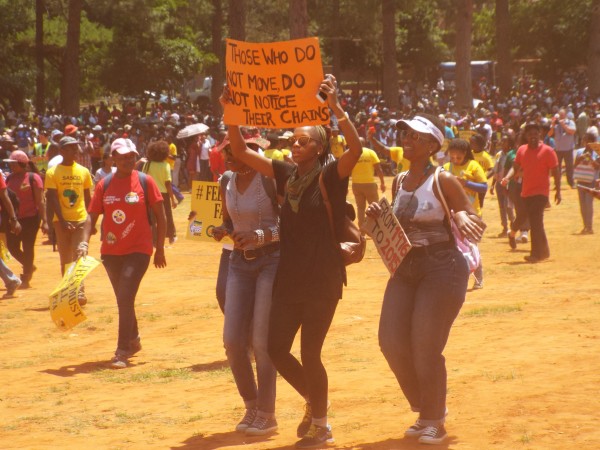Working together in times of crisis #feesmustfall
In October 2015, an increase in fees for students in various universities in South Africa was announced, causing outrage across the country. The move was seen as an attack on poorer students, and in a broader sense also on the quality of higher education, funding for which has been declining steadily. Ten thousands of students took to the streets in the largest student protest movement since 1976, which came to be known as #feesmustfall.
Amandla.mobi, a community-driven advocacy organization, has been working with student groups demanding a government response to the crisis – and finding success in using media and technology to create strong networks and collective action.
Many Voices, One Message
For Amandla.mobi, it started in March 2015 with the suppression of a report from the Ministry of Education. The report set out 12 recommendations showing how the government can provide free university education for students from low income households – but it was never made public.
Working with the student protesters in the emerging debate around university fees, the Amandla.mobi team started online campaigns and worked closely with the media, bringing the issue of the hidden report into the #feesmustfall debate.
Building on this growing social movement, the team was able to draw on a large group of followers from different groups who never had collaborated before, but who shared the same objective: accessible university education for everybody.
Why did it work?
Forming coalitions can be very effective and can lead to a government response, as long as everybody has the same message; one powerful, single message.
The team believes that the success of the campaign was due to the ability to rapidly connect others with the #feesmustfall movement, and which eventually has led to the release of the suppressed report in October 2015.
Koketso Moeti, campaign manager of Amandla.mobi, explains: “We see ourselves as an enabler, people come to us with issues and we build a campaign around it by working together with others who fight for the same cause.”
